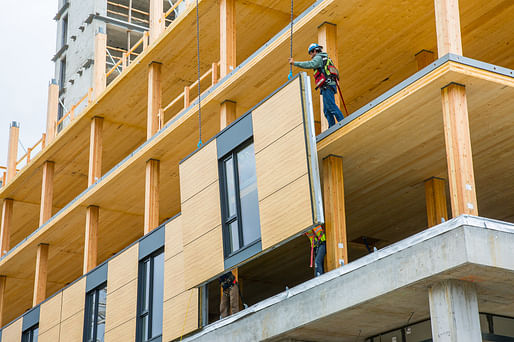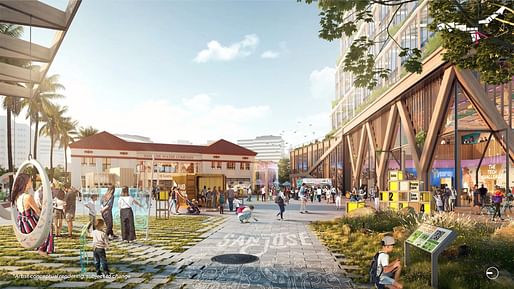
California Governor Gavin Newsom has signed into law a major reform to homebuilding in the state. The Affordable Housing and High Road Jobs Act, signed on September 28th, will override local zoning codes to allow for more affordable housing units to be built on land previously zoned for commercial use.
From July 1, 2023, certain residential projects comprised of 100% affordable housing will be granted “by right,” overriding local zoning laws and bypassing the California Environmental Quality Act (CEQA) approval process. To qualify, the affordable housing project must be located in commercial corridors, occupying land otherwise typically used for strip malls and parking lots.
Assemblymember Buffy Wicks, a leading proponent of the legislation, celebrated the bill’s passage into law by citing an independent analysis claiming it has the capacity to produce between 300,000 and 400,000 affordable homes across the state. The analysis, conducted by Urban Footprint and Economic & Planning Systems, also estimated that homes built along the commercial corridors would use 40% less water, drive 33% fewer miles, and produce up to 45% fewer greenhouse gas emissions.
The same law contains provisions designed to improve the conditions of construction workers in the state. To take advantage of the streamlined process, developers will have to produce contracts that guarantee construction workers at least the general prevailing wage for their geographical area. Additionally, developments with 50 or more housing units will require construction contractors to have participated in an apprenticeship program, a provision that many interpret as an effort to increase the proportion of unionized construction workers on projects.

The provisions surrounding labor conditions proved to be a contentious element of the bill during the legislative process. At a hearing back in April, union groups were split on the bill, with those opposed to the bill voicing concern that the removal of local approval processes would give union groups less time to negotiate pay and work rules.
“This bill claims to have labor standards that might as well be written in invisible ink because they will disappear before the first worker laces up their boots,” Erin Lehane, legislative director for the Building and Construction Trades Council, said during the hearing. The Council, which operates as an umbrella labor group for half a million construction workers, remained in opposition to the final bill.
However, the state’s Conference of Carpenters, which represents 82,000 workers, voiced support for the bill throughout its legislative journey, with one member telling the April hearing that the labor and recruitment requirements set out in the bill would “kick the door open, raise the wages, raise the conditions, produce housing, and a platform for new workers to come in. Why other labor unions aren’t jumping on this, I don’t know. For us, it’s crystal clear.”

The law joins many other legislative moves recently made by the state of California. Last month, the state legislature passed a new copyright protection law for publicly-available architectural drawings, while also passing a new salary transparency law for job adverts.
In August, the state unveiled a new water security strategy to combat concerns over future supply, while California building codes were updated to allow for high-rise mass timber buildings.
5 Comments
as soon as I see Gavin Newsom name attached to anything I automatically know that it will not work.
...
How about all housing? Will housing be built in wealthy enclaves?
All that land previously zoned for commercial use in wealthy enclaves, amirite? Reading is fundamental, as is the understanding of how much the tiers of government can do unilaterally.
There's just one catch: "affordable housing" in California is an oxymoron.
Block this user
Are you sure you want to block this user and hide all related comments throughout the site?
Archinect
This is your first comment on Archinect. Your comment will be visible once approved.